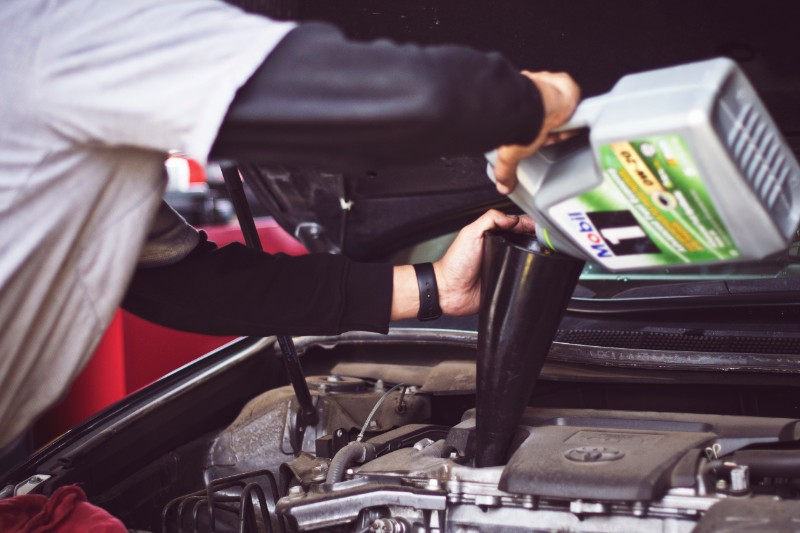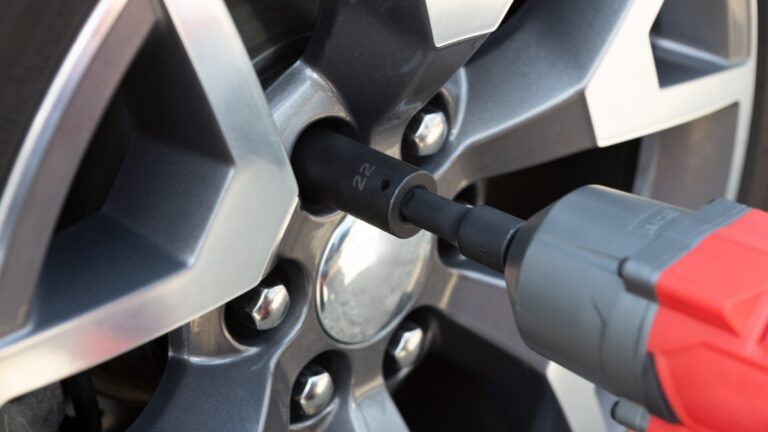Is It Normal That My Car Oil Smells Like Exhaust? Explained
You have to get worried when your car oil begins smelling like exhaust. It is not normal that you must get it diagnosed to determine the cause of the problem and have it fixed. Read on to discover why your car smells like that and the possible solutions.
You should be worried when you smell exhaust in your oil. It may have resulted from faulty sensors, driving short distances, and injector or carburetor problems. Avoid it by having a mechanic check your car and recommend appropriate solutions.
A potent oil smell means that you need an oil change. Neglecting it may make the smell more potent in the cabin and outside your car. The transmission fluid shouldn’t smell exhaust fumes apart from some burnt smell from the clutch pads.
Why It’s Not Normal For Your Car Oil To Smell Like Exhaust
Your oil smelling like exhaust is not good. It means something is wrong with your engine. You have to make a proper diagnosis to determine the cause of the problem. There are mainly two significant factors that may be causing the issue.
Fuel Economy
If fuel leaks into your oil, it’s getting heated and vaporized instead of burning. It means part of the money you use to buy fuel vanishes into thin air. The severity of the situation depends on how much fuel leaks into the oil, although it’s not a good thing, regardless of the extent.
Severe Issues
The drastic change in your oil is likely resulting from gasoline. It makes the oil not properly lubricate the engine. The situation encourages wear and tear, leading to higher chances of costly breakdowns. Immediate problems are unlikely but could lead to expensive repairs in the long run.
What Causes Oil To Sell Exhaust?
The oil in your car may smell like exhaust for the following reasons.
Driving Short Distances Often
The engine doesn’t start automatically heating up to its maximum temperature on starting your car. It increases gradually, making the engine unable to heat enough to burn gas once it enters the oil pan when you drive a short distance.
Gas in the oil pan remains and mixes with the oil, eventually contributing to the oil’s smell change. The issue results primarily from driving short distances since the engine never heats up properly if it’s always starting and stopping.
Faulty Sensors
The fuel mixture is the air-to-fuel ratio. It refers to the amount of air in gaseous, liquids, and gaseous fuels during combustion. This process comes from the engine’s internal combustion used by gasoline and diesel engines. The ideal gas-to-air ratio is 15:1, although various factors affect it.
This encourages the engine to inject more fuel and less air during combustion. A Mass Air Flow sensor determines the air-fuel mixture the engine needs. The faulty sensor leads to erroneous readings and makes too much air enter the engine but insufficient fuel.
A manifold Absolute Pressure (MAP) sensor is an option for the MAF sensor in some cars, although some have both. The sensor determines the air-fuel mixture depending on the pressure in the intake manifold. It doesn’t determine the air entering the engine as the MAF sensor does.
Like the MAF sensor, the MAP sensor can get faulty and creates problems too.
The O2 sensor can also become faulty and fails to determine the appropriate air-fuel mixture, making it relay incorrect information to the engine’s control unit. It may make the engine add extra oil to the subsequent combustion despite too much fuel for the ideal ratio.

Injector Problems
An injector is a valve in the car filled with pressurized fuel from the pump. Modern vehicles have injectors directing fuel toward the intake manifold for air and fuel to mix. A malfunctioning fuel injector encourages engine stalling, misfiring, rough idling, poor fuel economy, and gas leaks.
Faulty Carburetor
Older vehicles are affected by a faulty carburetor. The device brings air and fuel together in the appropriate ratio for combustion. It’s prone to malfunctioning, which encourages making bad ratios, encouraging engine overheating and misfiring.
Poor Piston Rings
These rings make the engine work properly. They conduct heat, control engine lubrication, and seal engine combustion. Damaged piston rings can’t work to their optimum efficiency. This may encourage gas to leak into the oil pan.
How To Prevent Gas From Getting Into The Oil
There are various solutions to consider to prevent gas from getting into your car oil, including the following:
Routine Maintenance
Regular maintenance of your car allows ensuring that everything is in good order. Effective maintenance will keep your car working well for a long time. It allows snuffing issues before they escalate to cause considerable damage.
Taking your car to a certified mechanic allows getting a professional opinion regarding the possible problems and solutions.
Changing The Piston Rings
The pistons are significant in the functioning of the engine. So, changing them when damaged is essential before they malfunction and cause severe problems. Changing the pistons successfully requires technical knowledge, making it ideal for a professional mechanic.
Taking Long Drives
If you occasionally take short drives, take a long drive someday to keep your car in good shape. The long drive prevents gas from mixing with the oil. A 20 to 30 minutes drive is ideal for the engine to heat up appropriately to burn any gas before it mixes with the oil. The car engine takes about five to 15 minutes to heat up properly.
Avoid Filling With Canisters.
It’s not a great idea to fill fluids in your vehicle using canisters. There’s a likelihood of mistaking a gas canister for that oil, causing a disaster. Always ensure that you’re filling up the proper fluid in your car.
Bottom Line
It’s not normal for your car oil to smell like exhaust. The issue may result from driving only short distances, limiting the engine from reaching the optimum temperature to burn the gasoline on the fuel pan. This ends up mixing with oil leading to the exhaust smell.







